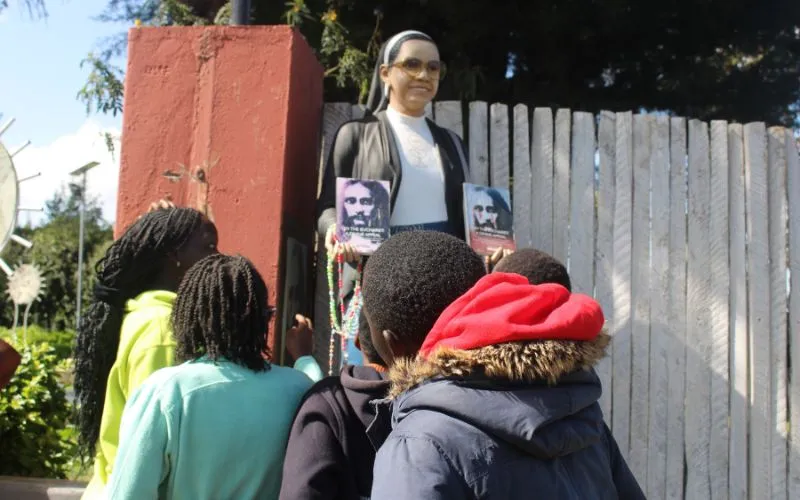“God has always had a special affection for humanity," GCBC members underscore in reference to Pope Francis’ description of mercy, adding that Lent is a “special time to reconcile with God.”
In their Letter signed by GCBC President, Archbishop Philip Naameh, the Bishops in Ghana urge the faithful to use the Season of Lent to reconcile with fellow humanity saying, “Our reconciliation with God is incomplete without reconciliation with our fellow humans.”
“As we enjoy the mercy of God, let us endeavor to be merciful to others; let us open our hearts to all people - our families, friends, brothers, sisters and even our enemies - wounded by our words, actions and/or omissions,” the Bishops appeal.
They invited the people of God in the West African nation to reach out to the less fortunate in the society during Lent saying that “mercy, which is at the core of reconciliation with others, also entails helping those in need.”
“Let us feed the hungry, give drink to the thirsty, clothe the naked, welcome the stranger, heal the sick, visit the imprisoned, bury the dead, counsel the doubtful, instruct the ignorant, admonish sinners, comfort the afflicted, forgive offences, bear patiently with those who do us ill and pray for the living and the dead,” GCBC members urge.
Engaging in the Corporal Works of Mercy and the Spiritual Works of Mercy “are more profound means of reconciling with one another,” the Bishops say in their four-page letter titled, “Do not be conformed to this world, but be transformed by the renewing of your minds, so that you may discern what is the will of God - what is good and acceptable and perfect.”
They invite the people of God in Ghana to reconcile with nature during Lent, and use the period to reflect on actions that harm the environment such as the “indiscriminate dumping of rubbish and industrial waste, 'galamsey' activities, logging, deforestation, water pollution and other forms of ecological degradation.”
“The earth is our common home. Yet, we have inflicted harm of various kinds and degrees on our natural environment by our irresponsible use,” the Bishops lament and appeal, “Let us treat our environment the very way we will treat ourselves since a healthy environment makes us healthier and happier.”
They add, “Let us resolve to implore God's mercy for those sins against creation that we have not hitherto acknowledged and likewise commit ourselves to taking concrete steps towards ecological conversion, which requires a clear recognition of our responsibility to ourselves, our neighbors, creation and the Creator.”








